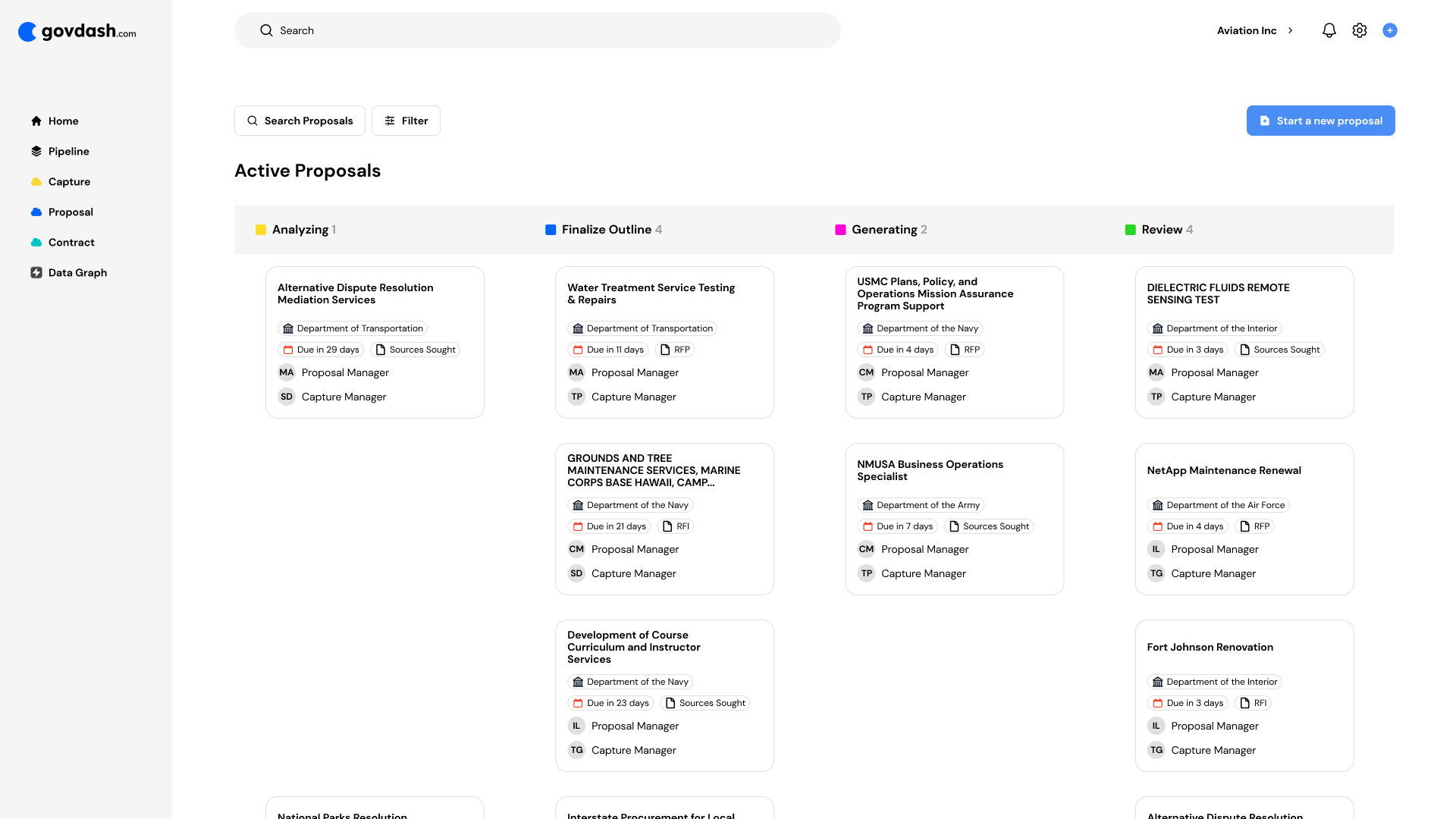Tim Goltser and Curtis Mason have been building things together since high school, when the two were the co-captains of their school’s robotics team. In college, Goltser and Mason teamed up to create an app — Hang, for scheduling hangouts with friends — with Sean Doherty, who Mason had met while an undergrad at Boston University.
Fast forward to 2022, and Goltser and Mason — along with Doherty — felt the entrepreneurial itch strike again. After considering a few ideas, they decided to go after what they saw as a largely unaddressed market: Tools to help small businesses secure U.S. government contracts.
“The federal contracting community has seen a shrinking of the small business industrial base for much of the past decade,” Doherty told TechCrunch. “It’s hard for these companies to compete against giants like Lockheed Martin or Northrop Grumman. It’s also expensive for them to bid on contracts — if they don’t win, they may run out of cash.”
As a result of labyrinthine systems and mountains of paperwork, finding and bidding for U.S. federal contracts is a laborious process. It takes weeks at a minimum to complete, according to Doherty — and often the best-resourced companies are the most successful.
In a 2023 survey from Setscale, a purchase order financing startup, small business owners cited insufficient cash flow and working capital — and a lack of time and resources — as their top roadblocks to securing government contracts.
To attempt to give these small businesses a boost, Goltser, Mason and Doherty founded GovDash, a platform that provides workflows to support government contract capture, proposal, development and management processes. GovDash was accepted to Y Combinator in 2022; Goltser dropped out of college to help spearhead it.
GovDash is essentially a contract proposal generator. The platform automatically finds contracts possibly relevant to a business, reads through the requests for proposals and — leveraging generative AI — writes proposals
GovDash can trawl through solicitation documents to identify requirements, requested formats, evaluation factors and submission schedules for contracts, Doherty says. It can also identify contracts a business might be qualified for based on their past performance, sending alerts to the inbox of a customer’s choosing, according to Doherty.
“When a contractor wants to respond to a government solicitation, they can run that through GovDash to produce a proposal in a fraction of the time,” Doherty said.
Now, generative AI makes mistakes. It’s a well-established fact. So why should businesses expect GovDash to be any different?
Two reasons, argues Doherty.
One, GovDash built a system that cross-checks a businesses’ info to see just how relevant the business is to a given federal contract. If the relevancy — as judged by the system — isn’t obvious, GovDash prompts the business to template out sections of the contract proposal with more information.

GovDash’s platform tries to automate many of the more tedious aspects of going after — and securing — U.S. federal contracts.
Two, GovDash involves heavy human review. At each stage of the proposal-generating process, the platform checks in with a human reviewer to get their seal of approval.
These steps — cross-checking and human review — aren’t infallible, Doherty admits. But he claims they’re better than what a lot of the competition’s doing.
“Companies now have one place where their business development data flows seamlessly, with an AI agent at its core to automate tedious workflows,” Doherty said. “This is a huge win for the C-suite as they can get out more proposals, at a higher quality level, in a fraction of the time, and put all the associated workflows on autopilot.”
GovDash’s competition is growing — and quickly.
GovDash competes with Govly, whose platform lets companies assess, search and analyze government contracting requirements across disparate sources. A more recent rival, Hazel, aims to use AI to automate government contracting discovery, drafting and compliance. Both — like GovDash — are Y Combinator-backed, interestingly.
But Doherty claims that GovDash is positioned well for expansion.
Having raised $12 million from investors including Northzone and Y Combinator, inclusive of a $10 million Series A funding tranche this month, GovDash plans to grow its engineering team, hire additional federal proposal managers to guide its product efforts and add new capabilities to its existing platform.
New York-based, six-employee GovDash currently works with around 30 federal contractors across the U.S., Doherty said, and is “nearly” cash-flow positive.
“We’re building for the long term for our customer base,” Doherty said. “[We’re] well-capitalized for eventual market tailwinds.”